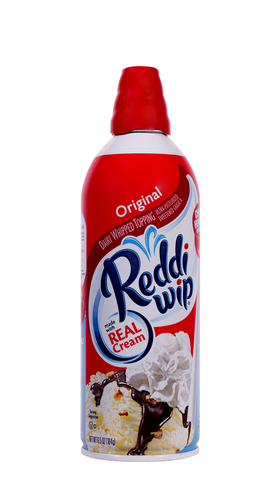Are Whippets Bad For You?
Also Known As: whip-its, hippie crack, nitrous oxide
Short answer
Although one or two whippets may not cause any damage, abusing them can lead you down a road to many severe and unwanted side effects. It's best you avoid whippets entirely.
Category 'F' is for things that fail to bring anything beneficial to the table, and are very harmful to your health. We recommend completely avoiding anything in this category. Long-term side effects of 'F' items are usually very serious.
View Full Grading System
Category 'A'
Very healthy and numerous health benefits. Side effects are rare. Things rated an 'A+' are typically necessary for survival (for example, water).
Very healthy and numerous health benefits. A few harmful qualities may be associated, but only under certain circumstances such as an allergic reaction.
Very healthy and numerous health benefits. Harmful qualities may be associated, but aren't usually serious.
It is important to note that even the best things in life can become bad in immoderate amounts. So, although something may be rated an 'A+', overconsumption/overdoing can bring unwanted effects.
Category 'B'
Very beneficial to your health. Things rated a 'B+' may have a few harmful qualities to pay attention to.
Overall beneficial to your health. Things rated a 'B' may have some harmful qualities to pay attention to.
More beneficial to your health than not. However, harmful qualities are most likely associated and shouldn't be overlooked.
The main difference between category 'A' and category 'B' is the harmful qualities typically present in 'B' items. Serious side effects are usually uncommon, but are still possible and should be taken note of.
Category 'C'
Both beneficial and harmful qualities associated. Things rated a 'C+' are typically a bit more on the beneficial side. Still, moderation is important.
A fairly even ratio of beneficial and harmful qualities. Moderation is important. Very general topics that can lean towards both sides of the spectrum will be placed here as well. Rice, for example, can be good or bad depending on the type.
More harmful than beneficial. Side effects are common, especially when consumed/done excessively. Moderation is very important.
Category 'C' usually denotes to both good and bad qualities. When it comes to this category, it is important to keep this word in mind: moderation.
Category 'D'
Harmful to your health. Although benefits may be associated, the bad most likely outweighs the good. Moderation is very important.
Harmful to your health. A few benefits may be associated, but the bad outweighs the good. Moderation is extremely important.
Harmful to your health. Very few, if any, benefits are present. Things in this category should be avoided as much as possible.
Category 'D' is typically for things that are more harmful than beneficial. While consuming/doing something unhealthy once in a blue moon shouldn't hurt, we definitely recommend eliminating 'D' items as a regular part of your routine/diet.
Category 'F'
Category 'F' is for things that fail to bring anything beneficial to the table, and are very harmful to your health. We recommend completely avoiding anything in this category. Long-term side effects of 'F' items are usually very serious.
Category 'N'
'N' stands for neutral. Things placed into this category are generally (a) neither good nor bad for you, or (b) lack the necessary evidence to reach any conclusions.
Long answer
So, your friend hands you a bottle of whipped cream and tells you to inhale it. He tells you that it's perfectly safe and the "high" is going to be awesome. Should you do it?
Powering that whipped cream can is compressed nitrous oxide, a globally abused recreational drug. Those who abuse it will tell you it produces an almost orgasmic feeling throughout the entire body. However, it is important to understand what abuse of nitrous oxide can do to you and your brain. Apoptosis, or the death of brain cells, is the most common side effect. Although it is more common with children and the elderly, anyone who abuses nitrous oxide is at risk of brain cell loss, and specifically cells in areas that control memory and learning.
Neurons in the brain use a material called myelin to cover and protect them. Because nitrous oxide misconfigures the body's ability to use vitamin b12 (a vitamin essential for myelin's existence) those who inhale the gas are prone myelin damage. In turn, brain function is slowed down and in rare cases can completely stop. This is a condition known as myeloneuropathy. On top of slowed cognitive function, myeloneuropathy is known to cause movement problems, a general weakness throughout the body, difficulty controlling the bladder and dementia.
To make matters worse, clinical research shows nitrous oxide can increase the risk of heart attack, slow bone marrow production, and cause nausea. It's also a good idea to note pressurized nitrous oxide can disperse at freezing cold temperatures. Many hospital visits include frost bite on the face, damaged vocal cords, and a damaged throat.
Possible short-term side effects
- difficulty moving
-
suffocation
-
frostbite
Possible long-term side effects
- myeloneuropathy
-
apoptosis
-
brain damage
-
slowed bone marrow production
-
heart attack
-
dementia
Benefits
Please turn your Ad Blocker off to see this content. Thank you!
Thank you for your feedback!
Written by Kathan Natrajan
Published on: 12-28-2015
Last updated: 04-23-2017
Thank you for your feedback!
Written by Kathan Natrajan
Published on: 12-28-2015
Last updated: 04-23-2017


 Approved by
Approved by 














